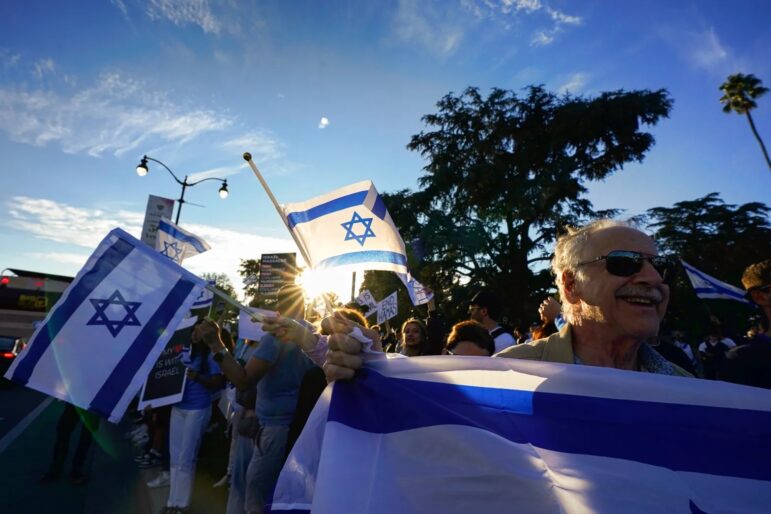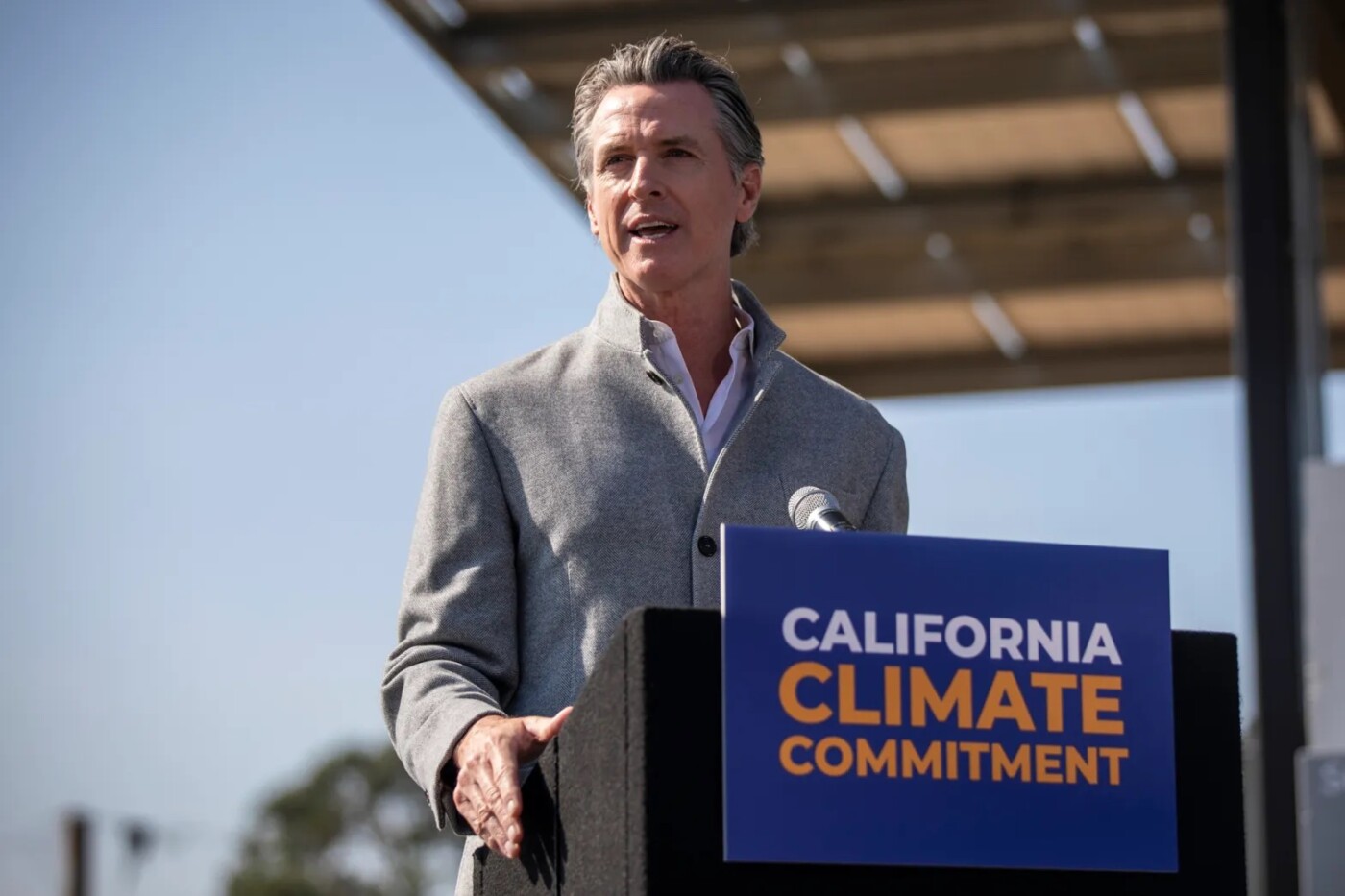From CalMatters Capitol reporter Alexei Koseff:
With his desk clear of bills for the year, Gov. Gavin Newsom is turning his attention from California policymaking to international relations.
The governor is on his way to China for a week-long excursion to promote cooperation on climate change, economic development and cultural exchange — after a brief pit stop in Israel today that his office suddenly announced Thursday. (More on that unexpected visit below.)
Newsom announced his China trip to much fanfare last month, following in the footsteps of previous Govs. Jerry Brown and Arnold Schwarzenegger, who led similar business- and climate-focused delegations to the country. It marks only the second major international trip of Newsom’s governorship, coming four-and-a-half years after he visited El Salvador, though plans to attend a climate conference in Scotland in 2021 were scrapped at the last minute.
Climate action has become increasingly central to Newsom’s agenda, where he has pushed legislation to commit California to carbon neutrality and sued oil companies for damages. The trip to China provides an opportunity for the governor to tout his climate credentials on the biggest stage yet — he addressed a United Nations summit last month — while also beefing up his foreign policy experience ahead of a potential future presidential campaign.
- Newsom, in a statement: “California and China hold the keys to solving the climate crisis. As two of the world’s largest economies, our partnership is essential to delivering climate action for our communities and beyond.”
The trip includes six stops, according to an itinerary shared by the governor’s office this week. Newsom plans to sign five memorandums of understanding with local and regional Chinese governments to “advance climate collaboration,” a source of growing tension between the United States and China. His office said the governor also hopes to promote more tourism to California, which has not fully recovered since the coronavirus pandemic.
Newsom kicks off his tour Monday in Hong Kong, where he will participate in a fireside chat with university leaders about fostering economic growth while combating climate change. Then he will travel to Guangdong province to learn about their transition to electric vehicles and electric public transit fleets.
In Beijing, Newsom will tour the Great Wall, meet with U.S. Ambassador Nicholas Burns and visit a local school with a farm-to-school food program. After visiting an offshore wind facility and a wetlands preserve in Jiangsu province, Newsom will take high-speed rail to Shanghai, where he will wrap up the trip with a tour of a Tesla factory.
Many of the activities highlight initiatives already underway in California: Newsom has committed to phasing out sales of new gas-powered vehicles by 2035 and pledged to protect 30% of land and coastal waters by 2030. The state is fast-tracking offshore wind projects as it attempts to convert its electric grid to 100% clean energy. And First Partner Jennifer Siebel Newsom has been working to expand farm-to-school food programs in California.
Life during wartime

Before heading for China, Gov. Newsom is first going to a war zone.
In a surprise announcement Thursday, he said that he will stop in Israel today, “meeting with those impacted by the horrific terrorist attacks and offering California’s support,” and also bringing medical supplies.
(By the way, by going to Israel, he’s skipping a scheduled speech on California wine at a New York City event hosted by Wine Spectator magazine.)
Newsom earlier responded to the rising tensions in the Israel-Hamas war by doubling money to protect California’s houses of worship. He announced late Wednesday that he has approved $10 million to immediately increase police presence and an additional $20 million in state grants to enhance security at nonprofits — including mosques and synagogues — that are at high risk for violent attacks and hate crimes.
- Newsom, in a statement: “No matter how and where one prays, every Californian deserves to be safe.”
California is home to the largest Arab-American population in the U.S. and the second largest Jewish population. Reaction to the war is rippling through academia, business and communities. Some tech executives canceled plans to attend the Web Summit’s global conference in Portugal after its founder condemned Western support of Israel and accused Israel of war crimes, the San Francisco Chronicle reports, though he later apologized for comments that “caused profound hurt.”
Meanwhile, two professors at UC Berkeley are trying to prevent that hurt from happening in the first place. Ron Hassner, director of the Helen Diller Institute for Jewish Law and Israel Studies, and Hatem Bazian, a lecturer on Palestine, Islamophobia and post-colonial studies, have clashed previously. But the Chronicle reports that they issued a joint message through the chancellor’s office that acknowledged that “disagreement and different points of view are an essential part of life,” but urged students to show one another “respect and dignity.”
- The statement: “We love this campus with its diverse communities and all of our students and are heartbroken to hear of incidents of near violence between students in recent days. We will not tolerate our students harming one another.”
